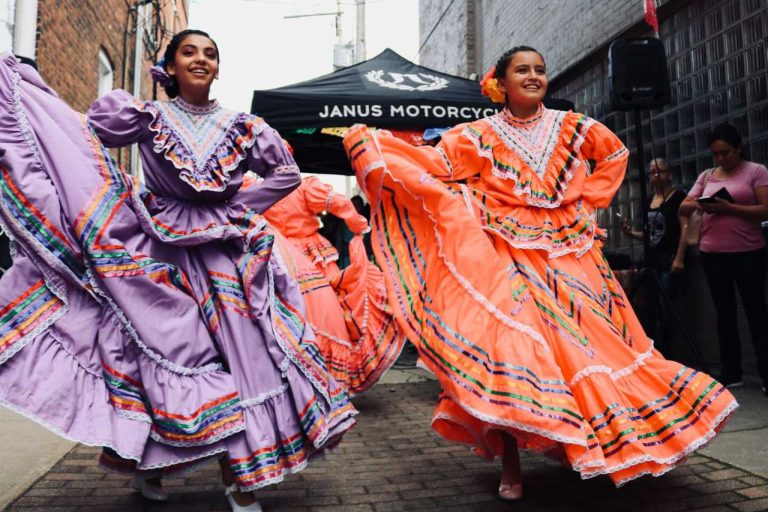
The Best Ways to Say Congratulations in Spanish
DATE:
If you have a birthday coming up, or your best friend just got a promotion at a job, saying congratulations in Spanish is one of those key phrases that are so important to sound like a native.
Luckily, there are a lot of great moments in life, and you’ll want to be able to express how happy you are at those times. Whether it’s a holiday or just an important personal event, after this article, you’ll be prepared to congratulate someone on any type of special moment they have.
So get out your notebook and get ready to learn all the best ways to say congratulations in Spanish!
General Ways to Say Congratulations in Spanish
First, we can start with a general way to say congratulations in Spanish. These can be for both normal or really important events. These are some great options to keep in your pocket for any possible occasion that may come up.
All of them are quite common, though some may be more frequent in some regions compared to others. Let’s get to it:
Felicitaciones
It is one of the most common ways to say congratulations in Spanish. Felicitaciones literally means congratulations. You can say this for just about anything:
- “Acabo de conseguir un nuevo trabajo” “¿Ah sí? ¡Felicitaciones!” – “I just got a new job” “Oh yeah? Congratulations!”
- “¡He aprobado el examen!” “Felicitaciones, sabía que lo lograrías” – “I just passed the exam!” “Congrats, I knew you would do it!”
For both big events, formal or informal, you can use this word to send someone your good wishes. Like in the second sentence, you can also add on some extra explanation to sound nicer.
Felicidades
Felicidades means exactly the same thing as Felicitaciones. It’s simply a synonym for the exact same expression, so feel free to use whichever Spanish vocabulary word you like better. For example:
- Felicidades por el nuevo trabajo. – Congratulations on the new job.
- Felicidades por tu ascenso. – Congrats on your promotion.
Enhorabuena
Enhorabuena is again, the exact same way to say congratulations in Spanish as in the previous examples. However, this word is much more common in Spain than it is in Latin America.
- Enhorabuena por tu nuevo trabajo. – Congratulations on your new job.
- ¿¡Se van a casar!? ¡Enhorabuena! – Are you guys getting married!? Congratulations!
FUN FACT…
As an interesting Spanish fact, in Spain, there is a slight difference between Enhorabuena and Felicidades. Enhorabuena is used only for congratulating an achievement, whereas Felicidades is more common for birthdays. This isn’t a firm rule, but it’s more common to use them this way.
Te felicito
This one is slightly less common than the previous ones, but it’s a good option to have if you want to send your good wishes to someone. It’s a little more literal, saying “I congratulate you”.
This might be common to hear when someone has helped you achieve something. For example, a teacher might say this to their student.
- Te felicito, lo hiciste muy bien. – Congratulations, you did a great job.
¡Me alegro mucho!
This option isn’t exactly saying “congratulations”, but it is expressing that you are happy for someone. Me alegro means “I’m happy” or “That makes me happy”.
So if someone has good news for you, you can say this. You can also say “me alegro mucho por ti” as a way to say that you are happy for them.
- “¡Voy a ser mamá!” “¡Ah, felicidades! ¡Me alegro mucho por ti!” – “I’m going to be a mom!” “Congratulations! I’m so happy for you!”
Qué alegría / Qué bien
Qué alegría or Qué bien is the same as the previous congratulations phrase. These phrases mean “What a joy/How great!”. The translations sound a little choppy, but in Spanish, these types of expressions are really common.
Basically, anytime you want to express happiness or give congratulations to someone, you can use either of these examples.
Congratulations in Spanish for Special Occasions
Sometimes very specific events take place that requires less generic congratulations. If there is a holiday or some kind of special occasion, you’ll want to be able to be more concrete in what you are celebrating.
So here are some ways to say congratulations in Spanish for some specific events:
Feliz Cumpleaños

You might already know this one, but Feliz cumpleaños means Happy Birthday. This is one of the most basic phrases you’ll need to know in the Spanish-speaking world, so don’t forget this one.
And definitely don’t forget the ñ in the spelling!
As a fun fact, the birthday song in Spanish goes a little differently in many countries. In many regions, the lyrics are:
Cumpleaños feliz
Cumpleaños feliz
Te deseamos todos a ti
Un cumpleaños feliz
So there you go – now you can go one step further. You can say Happy Birthday, and you can sing it to someone!
Feliz Navidad
If you haven’t already learned how to say this from a popular Spanish Christmas song, then the way you can wish someone a Merry Christmas is by saying Feliz Navidad.
This is going to be an important one to know since it is so common to hear. The next time you want to tell someone Merry Christmas, one of your options is to simply say Feliz Navidad.

Feliz año nuevo
Connecting with Winter-related festivities, in order to wish someone a Happy New Year, you can say Feliz año nuevo.
In fact, for almost any holiday or a special day, all you need to do is add Feliz in front of it. Here are are some other examples you might stumble across:
- Feliz Pascua – Happy Easter
- Feliz Aniversario – Happy anniversary
- Feliz Día de las Madres – Happy Mother’s Day
The list could go on forever and this can extend to traditions in any culture, as well. You could also say Feliz Hanukkah or Feliz Diwali. So the good news is that the grammar for saying congratulations in Spanish stays pretty consistent!
The essential part of any conversation. Learn all the ways you can say Hi and Farewell in Spanish with our guides on Spanish greetings and goodbyes.
Felices fiestas
For anyone who would like to be a little more inclusive in their speech, especially when speaking to groups of people or someone you don’t know, you can say Felices fiestas as the translation for Happy Holidays.
This is a great way to include many holidays in one congratulation, so you can make sure you are making everyone feel welcomed. So this winter, when you want to say Happy Holidays, you can say Felices fiestas.
For the grammar here – since fiestas is a plural noun, we’ll say Felices rather than Feliz, to make sure that the adjective is consistent with the noun.
Specific Events
Finally, sometimes you want to be able to congratulate someone for a specific event. If it is out of context, you can’t rely on just saying Muchas Felicidades and hoping the other person knows what you’re talking about.
So now you’re going to learn a technique to make sure you can customize any congratulation to fit your needs.
Felicidades por
Really, the key to customizing your big congratulations is the word Por. By using almost any of the phrases you learned in the first section, then adding Por, you can specify what you are congratulating the person on.
Here are some great examples:
- Felicidades por la boda – Congrats on the wedding/marriage
- Felicidades por tu nuevo trabajo – Congratulations on your new job
- Felicitaciones por el bebé – Congrats on the new baby
You can also throw in a Muchas… to express a higher level of happiness, too. So you can say Muchas felicidades por tu aniversario.

Alternative Ways to say Congrats in Spanish
Finally, there are some other ways to congratulate people for their special occasions. The following list is a little less common than using something like Felicidades, but in the right context, they’ll sound great!
- Te deseo mucho éxito – I wish you success
- Bien merecido – Well deserved
- Te deseo lo mejor – I wish you the best
- Felicitaciones por esta nueva etapa – Congrats on this new stage
- Salud – Cheers
- Bienvenido al mundo, bebé – Welcome to the world, baby
¡Buen trabajo!
¡Felicitaciones! You did it! Now you’re the best at saying congratulations in Spanish. Anytime something great happens near you, you’ll be the first to say congratulations like a native speaker.
If you’re ready to hear some good news yourself, go ahead and sign up for a free private class or a 7-day free trial of our group classes so we can congratulate you on all the great work you’ve been doing!











